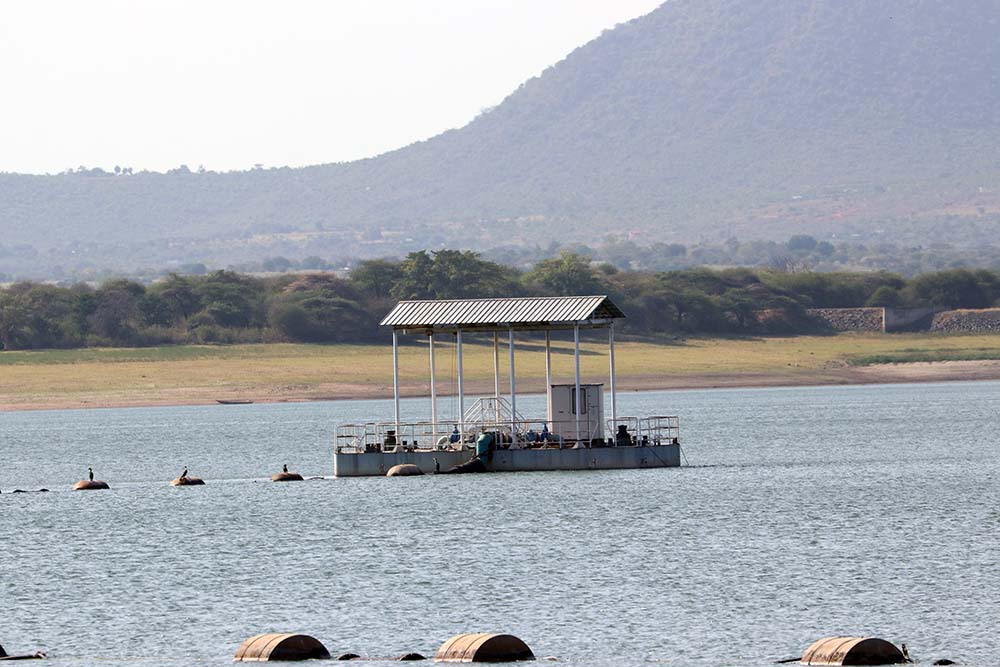National Water Governance Conversation Resolutions – Naivasha 2021

The National Water Governance Conversation convened in Naivasha by WASREB in conjunction with Kenya Markets Trust, came to an end today with delegates agreeing on the following action points. A comprehensive report to ratify the resolutions to come soon.
Governance has been identified as a major issue in the water sector. The following have been identified as the emerging issues in the ongoing dialogue;
| S/N | Emerging Issues | Resolutions |
| 1. | Huge financial gap in water sector (infrastructure development and debt repayment). Required investment to achieve 100% coverage in the water and sewerage sector by 2030 is est. At Ksh 1,765 billion, with a financing gap of Ksh 1,172 billion which is equivalent to KES 100 Billion annually (WASREB, 2015) | · Explore non-traditional financing mechanisms– e.g., local banks, PPPs, etc.
· Reduction of NRW- low lying fruits in sector financing. · Full cost recovery tariffs for areas/ customers whose ability to pay is high e.g., Urban areas · Ensuring value for money for all investments in the water projects |
| 2. | Urgent need for clear delineation of functions between the two levels of government (national and county governments). Nine years down the devolution road, there are still many grey areas in terms of sharing functions and roles. | · The IGTRC to be more pro-active in engaging National and county govts. to resolve the difference
· Signing off and operationalization of the sector Intergovernmental Coordination Framework · More engagements between the two levels of government to be encouraged · Where disputes arise, parties encouraged to use alternative dispute resolution mechanisms (ADR) |
| 3. | Need for review of Water Act 2016 to appropriately realign it with CoK 2010 expectations and the emerging legal and institutional challenges of the sector | · The Ministry, CoG and the IGTRC to fast track the review of the Water Act 2016 |
| 4. | Weak enforcement of laws and regulations in the sector. This has adversely affected the sector’s ability to meet standards in service delivery | · Review of the legal and institutional framework
· Full implementation of the existing laws, policies and regulations · Culture change and embracing of the value system as a people |
| 5. | Need for evidence-based investment planning in the sector without which the sector is not able to identify its priorities | · Investment in accurate and reliable data to inform sector planning in general.
· Mainstreaming M&E in investment and project planning · Establishing a Water Sector Data Hub to ensure a coordinated sector reporting on key parameters for the whole country |
| 6. | Value for money for the sector investments. Concerns of whether the country is getting value for money from its stock of infrastructure investments | · Frequent value for money audits in the sector is required
· Use of best practice investment planning · Linking major water infrastructure with last mile connectivity · Operating within the professional standards as enshrined within our respective professional bodies like ERB, ICPAK, ICS (K), LSK, etc. – Stern action taken on culprits. |
| 7. | Need for a wholistic view of governance issues in the sector as a whole. | · Engagement of the all the actors in the sector to proactively address the persistent governance issues
· Promote multi-sectorial approach in addressing the water needs for economic and social development |
| 8. | Need for continuous capacity building in governance in the sector particularly for new Board members and Management | · Adoption of the Governance Training Manual and its regular use
· Mainstreaming of governance issues in the water sector training curricula · Mainstreaming of succession planning in sector institutions |
| 9. | Managing politics in the sector, especially during transition periods of government change (disruption by in-coming new administrations/governments) | · New administration has to adhere to existing regulation
· appropriate training of newly elected and appointed leaders on water governance |
| 10 | Low uptake of technological innovations to improve service provision in the sector | · Sector need to engage the players to explore opportunities of leverage
· Deliberate policies & plans on technological innovations including strengthening the human resources capacity and financial investments |